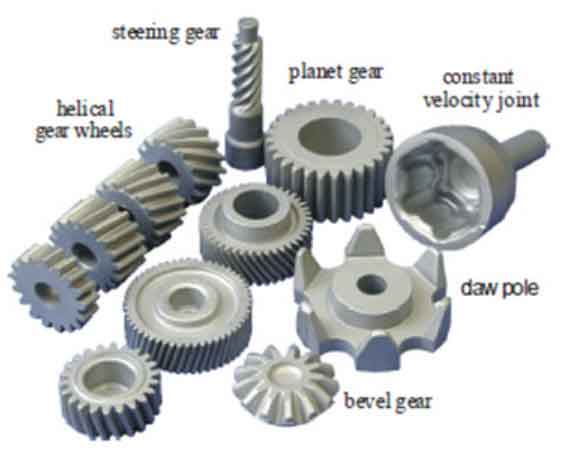Precision forging is a manufacturing process that excels in achieving customization and complexity in the fabrication of metal components. It offers the capability to produce highly intricate and tailor-made parts with exceptional accuracy and efficiency. By leveraging advanced techniques and equipment, precision forging enables the creation of complex geometries, customization options, and unique features that are challenging to achieve through traditional manufacturing methods.

Here’s how precision forging enables customization and complexity in metal component fabrication:
Design Flexibility:
Precision forging allows for a high degree of design flexibility, enabling the creation of custom components to meet specific requirements. The process can accommodate complex shapes, internal cavities, undercuts, and intricate features that traditional methods cannot easily replicate. This flexibility enables engineers to optimize component designs for performance, weight reduction, integration, and aesthetics.
Near-Net Shape Production:
Precision forging enables the production of components with near-net shapes. By closely matching the desired final shape, it minimizes the need for extensive machining and material removal processes. This results in cost savings, reduced lead times, and improved material utilization. Near-net shape production also reduces the environmental impact by minimizing waste and energy consumption.
Material Selection:
Precision forging can be applied to a wide range of metals and alloys, including steel, aluminum, titanium, and their various combinations. This versatility allows manufacturers to select the most suitable materials for specific applications, taking into account factors such as strength, weight, corrosion resistance, and thermal properties. Customization extends to material selection, ensuring that components are tailored to meet the desired performance requirements.
Enhanced Mechanical Properties:
Precision forging enhances the mechanical properties of the forged components compared to other manufacturing methods such as casting. The controlled deformation and grain refinement achieved during precision forging lead to improved material strength, toughness, and fatigue resistance. This enables the production of components that can withstand demanding operating conditions and ensures high reliability and longevity.
Multi-Functional Integration:
Precision forging enables the integration of multiple functions into a single component. By consolidating several parts into a single forged component, complexity is reduced, assembly time is minimized, and potential failure points are eliminated. This integration enhances efficiency, reduces weight, and simplifies the overall assembly process.
Repeatable and Scalable Production:
Precision forging offers repeatable and scalable production capabilities, making it suitable for both small-scale and large-scale manufacturing. The process can be automated, ensuring consistent quality and minimizing variations between production runs. This scalability enables manufacturers to meet varying demands, from prototypes and low-volume production to high-volume manufacturing.
Quality Control and Inspection:
Precision forging incorporates rigorous quality control and inspection measures to ensure that components meet the desired specifications. Non-destructive testing techniques, such as ultrasonic inspection, magnetic particle testing, and visual inspection, are employed to detect any defects or deviations. This ensures that each component meets the required quality standards, contributing to customer satisfaction and safety.
Precision forging’s ability to achieve customization and complexity in metal component fabrication has significant advantages, including optimized performance, reduced weight, improved functionality, and enhanced aesthetics. Industries such as automotive, aerospace, defense, and medical rely on precision forging to create components that meet specific requirements while maintaining high standards of quality, reliability, and efficiency.
